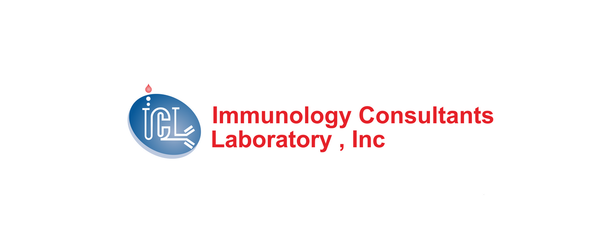Description
CTLA4 Antibody [2G10] | RF16012 | ProSci
Host: Mouse
Reactivity: Human
Homology: N/A
Immunogen: CTLA-4 antibody was raised against the extracellular domain of human CTLA-4.
Research Area: Immunology
Tested Application: E, WB, IHC-P, ICC, IF
Application: CTLA-4 antibody can be used for detection of CTLA-4 by Western blot at 1 - 2 μg/mL. Antibody can also be used for immunohistochemistry starting at 5 μg/mL. For immunofluorescence start at 20 μg/mL.
Antibody validated: Western Blot in human samples; Immunohistochemistry in human samples; Immunocytochemistry in human samples and Immunofluorescence in human samples. All other applications and species not yet tested.
Specificiy: N/A
Positive Control 1: Cat. No. 1210 - HEK293 Lysate Cell Lysate
Positive Control 2: N/A
Positive Control 3: N/A
Positive Control 4: N/A
Positive Control 5: N/A
Positive Control 6: N/A
Molecular Weight: Predicted: 25 kDa
Observed: 32 kDa
Validation: N/A
Isoform: N/A
Purification: CTLA-4 Antibody is supplied as protein A purified IgG1.
Clonality: Monoclonal
Clone: 2G10
Isotype: IgG1
Conjugate: Unconjugated
Physical State: Liquid
Buffer: CTLA-4 Antibody is supplied in PBS containing 0.02% sodium azide and 50% glycerol.
Concentration: 1 mg/mL
Storage Condition: CTLA-4 antibody can be stored at 4˚C for three months and -20˚C, stable for up to one year. As with all antibodies care should be taken to avoid repeated freeze thaw cycles. Antibodies should not be exposed to prolonged high temperatures.
Alternate Name: CTLA-4 Antibody: CTL4, cytotoxic T-lymphocyte associated protein 4, CD, GSE, GRD4, ALPS5, CD152, IDDM12, CELIAC3
User Note: Optimal dilutions for each application to be determined by the researcher.
BACKGROUND: The cytotoxic T-lymphocyte-associated protein 4 (CTLA-4) , also known as CD152, is a member of the immunoglobulin superfamily that is expressed by activated T cells and transmits an inhibitory signal to T cells (1, 2) . Both it and the homologous T-cell co-stimulatory protein CD28 bind to CD80 (B7-H1) and CD86 (B7-H2) on antigen-presenting cells (APCs) (3) . Mutations in the CTLA-4 gene have been implicated in multiple autoimmune diseases (4) . CTLA-4 also functions as an immune checkpoint protein, and anti- CTLA-4 antibodies have been successfully used in the treatment of cancer (5) .
Additional Information
Clonality: |
Monoclonal |
Tested Applications: |
E, ICC, IF, IHC-P, WB |
Host Species: |
Mouse |
Species Reactivity: |
Human |
Conjugate: |
Unconjugated |

![CTLA4 Antibody [2G10] CTLA4 Antibody [2G10]](https://cdn11.bigcommerce.com/s-d51n6vkyg9/images/stencil/608x608/products/13862/19954/CTLA-4-Antibody-2G10_ELISA_RF16012__54585.1653921611.gif?c=1)
![CTLA4 Antibody [2G10] CTLA4 Antibody [2G10]](https://cdn11.bigcommerce.com/s-d51n6vkyg9/images/stencil/608x608/products/13862/19955/CTLA-4-Antibody_ICC_RF16012__27936.1650060598.gif?c=1)
![CTLA4 Antibody [2G10] CTLA4 Antibody [2G10]](https://cdn11.bigcommerce.com/s-d51n6vkyg9/images/stencil/608x608/products/13862/19956/CTLA-4-2G10-Antibody_IF_RF16012__81610.1650060612.gif?c=1)
![CTLA4 Antibody [2G10] CTLA4 Antibody [2G10]](https://cdn11.bigcommerce.com/s-d51n6vkyg9/images/stencil/608x608/products/13862/19957/CTLA-4-Antibody_WB_RF16012__62110.1650060618.gif?c=1)
![CTLA4 Antibody [2G10] CTLA4 Antibody [2G10]](https://cdn11.bigcommerce.com/s-d51n6vkyg9/images/stencil/608x608/products/13862/19962/CTLA-4-2G10-Antibody_IF-2_RF16012__52083.1650060716.gif?c=1)
![CTLA4 Antibody [2G10] CTLA4 Antibody [2G10]](https://cdn11.bigcommerce.com/s-d51n6vkyg9/images/stencil/608x608/products/13862/19958/CTLA-4-Antibody_IHC_RF16012__70589.1650060639.gif?c=1)
![CTLA4 Antibody [2G10] CTLA4 Antibody [2G10]](https://cdn11.bigcommerce.com/s-d51n6vkyg9/images/stencil/608x608/products/13862/19959/CTLA-4-2G10-Antibody_IF-2_RF16012__16276.1650065928.gif?c=1)
![CTLA4 Antibody [2G10] CTLA4 Antibody [2G10]](https://cdn11.bigcommerce.com/s-d51n6vkyg9/images/stencil/608x608/products/13862/19960/CTLA-4-2G10-Antibody_IF-3_RF16012__64424.1650060646.gif?c=1)
![CTLA4 Antibody [2G10] CTLA4 Antibody [2G10]](https://cdn11.bigcommerce.com/s-d51n6vkyg9/images/stencil/608x608/products/13862/19961/CTLA-4-Antibody_IHC-2_RF16012__87997.1650060646.gif?c=1)
![CTLA4 Antibody [2G10] CTLA4 Antibody [2G10]](https://cdn11.bigcommerce.com/s-d51n6vkyg9/images/stencil/608x608/products/13862/21977/lighter__94081.1653921611.jpg?c=1)
![CTLA4 Antibody [2G10] CTLA4 Antibody [2G10]](https://cdn11.bigcommerce.com/s-d51n6vkyg9/images/stencil/608x608/products/13862/21978/lighter2__50781.1653921611.jpg?c=1)
![CTLA4 Antibody [2G10] CTLA4 Antibody [2G10]](https://cdn11.bigcommerce.com/s-d51n6vkyg9/images/stencil/608x608/products/13862/21981/lighter3__50321.1653921612.jpg?c=1)
![CTLA4 Antibody [2G10] CTLA4 Antibody [2G10]](https://cdn11.bigcommerce.com/s-d51n6vkyg9/images/stencil/608x608/products/13862/21979/lighter4__32411.1653921612.jpg?c=1)
![CTLA4 Antibody [2G10] CTLA4 Antibody [2G10]](https://cdn11.bigcommerce.com/s-d51n6vkyg9/images/stencil/608x608/products/13862/21980/lighter5__21465.1653921612.jpg?c=1)
![CTLA4 Antibody [2G10] CTLA4 Antibody [2G10]](https://cdn11.bigcommerce.com/s-d51n6vkyg9/images/stencil/100x100/products/13862/19954/CTLA-4-Antibody-2G10_ELISA_RF16012__54585.1653921611.gif?c=1)
![CTLA4 Antibody [2G10] CTLA4 Antibody [2G10]](https://cdn11.bigcommerce.com/s-d51n6vkyg9/images/stencil/100x100/products/13862/19955/CTLA-4-Antibody_ICC_RF16012__27936.1650060598.gif?c=1)
![CTLA4 Antibody [2G10] CTLA4 Antibody [2G10]](https://cdn11.bigcommerce.com/s-d51n6vkyg9/images/stencil/100x100/products/13862/19956/CTLA-4-2G10-Antibody_IF_RF16012__81610.1650060612.gif?c=1)
![CTLA4 Antibody [2G10] CTLA4 Antibody [2G10]](https://cdn11.bigcommerce.com/s-d51n6vkyg9/images/stencil/100x100/products/13862/19957/CTLA-4-Antibody_WB_RF16012__62110.1650060618.gif?c=1)
![CTLA4 Antibody [2G10] CTLA4 Antibody [2G10]](https://cdn11.bigcommerce.com/s-d51n6vkyg9/images/stencil/100x100/products/13862/19962/CTLA-4-2G10-Antibody_IF-2_RF16012__52083.1650060716.gif?c=1)
![CTLA4 Antibody [2G10] CTLA4 Antibody [2G10]](https://cdn11.bigcommerce.com/s-d51n6vkyg9/images/stencil/100x100/products/13862/19958/CTLA-4-Antibody_IHC_RF16012__70589.1650060639.gif?c=1)
![CTLA4 Antibody [2G10] CTLA4 Antibody [2G10]](https://cdn11.bigcommerce.com/s-d51n6vkyg9/images/stencil/100x100/products/13862/19959/CTLA-4-2G10-Antibody_IF-2_RF16012__16276.1650065928.gif?c=1)
![CTLA4 Antibody [2G10] CTLA4 Antibody [2G10]](https://cdn11.bigcommerce.com/s-d51n6vkyg9/images/stencil/100x100/products/13862/19960/CTLA-4-2G10-Antibody_IF-3_RF16012__64424.1650060646.gif?c=1)
![CTLA4 Antibody [2G10] CTLA4 Antibody [2G10]](https://cdn11.bigcommerce.com/s-d51n6vkyg9/images/stencil/100x100/products/13862/19961/CTLA-4-Antibody_IHC-2_RF16012__87997.1650060646.gif?c=1)
![CTLA4 Antibody [2G10] CTLA4 Antibody [2G10]](https://cdn11.bigcommerce.com/s-d51n6vkyg9/images/stencil/100x100/products/13862/21977/lighter__94081.1653921611.jpg?c=1)
![CTLA4 Antibody [2G10] CTLA4 Antibody [2G10]](https://cdn11.bigcommerce.com/s-d51n6vkyg9/images/stencil/100x100/products/13862/21978/lighter2__50781.1653921611.jpg?c=1)
![CTLA4 Antibody [2G10] CTLA4 Antibody [2G10]](https://cdn11.bigcommerce.com/s-d51n6vkyg9/images/stencil/100x100/products/13862/21981/lighter3__50321.1653921612.jpg?c=1)
![CTLA4 Antibody [2G10] CTLA4 Antibody [2G10]](https://cdn11.bigcommerce.com/s-d51n6vkyg9/images/stencil/100x100/products/13862/21979/lighter4__32411.1653921612.jpg?c=1)
![CTLA4 Antibody [2G10] CTLA4 Antibody [2G10]](https://cdn11.bigcommerce.com/s-d51n6vkyg9/images/stencil/100x100/products/13862/21980/lighter5__21465.1653921612.jpg?c=1)
![CTLA4 Antibody [1E6] CTLA4 Antibody [1E6]](https://cdn11.bigcommerce.com/s-d51n6vkyg9/images/stencil/590x590/products/13861/21972/lighter__76556.1653921468.jpg?c=1)
![CTLA4 Antibody [1E6] CTLA4 Antibody [1E6]](https://cdn11.bigcommerce.com/s-d51n6vkyg9/images/stencil/590x590/products/13861/19950/CTLA-4-Detection-Set-Risk-Free_ELISA-2_RF16010__93175.1650059588.gif?c=1)





